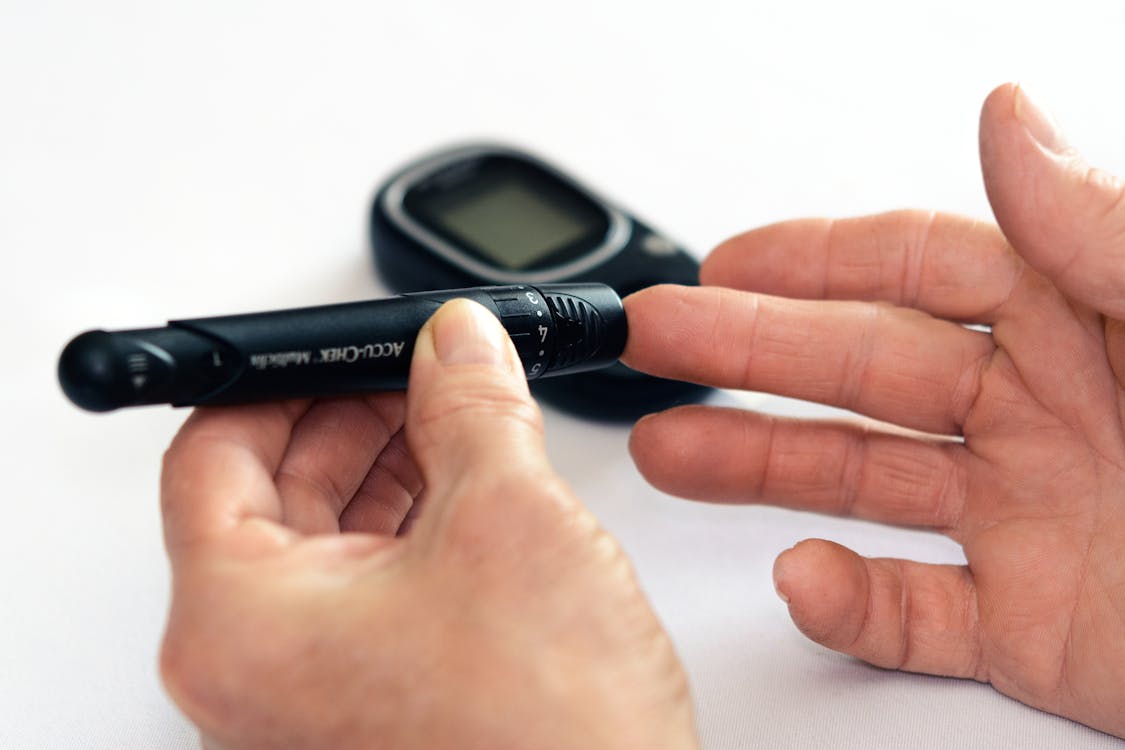In the tapestry of life, health often takes center stage, and for millions around the world, managing type 2 diabetes is a daily reality. A diagnosis of type 2 diabetes isn’t just a medical condition; it’s a call to action, a journey that demands attention, understanding, and a commitment to well-being. If you find yourself standing at the crossroads of type 2 diabetes, this guide is your companion, offering a human-centric approach to managing this condition and living a fulfilling life.
Understanding Type 2 Diabetes:

1. Demystifying the Condition:
Type 2 diabetes is a metabolic disorder characterized by insulin resistance, where the body’s cells don’t respond effectively to insulin. This results in elevated blood sugar levels, leading to a range of health issues. While genetics play a role, lifestyle factors such as diet, physical activity, and weight management significantly influence its onset and progression.
2. Listening to Your Body:
Understanding the signals your body sends is paramount in managing type 2 diabetes. Symptoms like increased thirst, frequent urination, fatigue, and slow-healing wounds are potential red flags. Regular monitoring of blood sugar levels, paired with awareness of your body’s responses, empowers you to take proactive steps in managing the condition.
Embracing a Holistic Approach:
1. The Power of Nutrition:
Crafting a balanced and diabetes-friendly diet is a cornerstone of effective management. Prioritize whole, unprocessed foods, focusing on fiber-rich vegetables, lean proteins, and complex carbohydrates. Monitoring portion sizes and spacing meals evenly throughout the day can help stabilize blood sugar levels.
2. The Dance of Physical Activity:
Regular physical activity is not only beneficial for weight management but also plays a crucial role in diabetes management. Find activities you enjoy – be it walking, swimming, or dancing – and aim for at least 150 minutes of moderate-intensity exercise per week. Exercise helps your body utilize insulin more effectively, contributing to improved blood sugar control.
3. Weight Management as a Journey, Not a Destination:
For many with type 2 diabetes, weight management becomes a focal point. However, it’s essential to approach this aspect as a journey rather than a destination. Set realistic goals, celebrate small victories, and focus on overall well-being rather than a specific number on the scale.
Medication and Treatment:

1. Working Hand in Hand with Medication:
In some cases, medication may be prescribed to help manage blood sugar levels. It’s crucial to view medication as a supportive tool, not a sign of failure. Regular communication with your healthcare team ensures that the chosen treatment plan aligns with your lifestyle and individual needs.
2. Embracing the Finger Prick:
Regular monitoring of blood sugar levels through at-home testing provides valuable insights into how your body responds to different foods, activities, and medications. Embrace the finger prick as a tool for self-awareness and empowerment, allowing you to make informed decisions about your daily routine.
Nurturing Mental and Emotional Well-being:
1. The Emotional Landscape of Diabetes:
Managing type 2 diabetes isn’t solely a physical challenge; it encompasses the emotional landscape as well. It’s okay to acknowledge the emotional impact of this journey – from fear and frustration to moments of triumph. Seek support from friends, family, or a mental health professional to navigate the emotional complexities with resilience and grace.
2. Building a Support System:
Creating a support system is a crucial aspect of diabetes management. Share your journey with those close to you, and educate them about the condition. Having a reliable support network provides encouragement during challenging times and celebrates victories, both big and small.
Practical Tips for Everyday Living:

1. Meal Planning as a Ritual:
Approach meal planning as a positive ritual rather than a chore. Experiment with new recipes, savor the flavors of whole foods, and involve loved ones in the process. Meal planning not only supports blood sugar management but also fosters a sense of joy and connection with the food you consume.
2. Mindful Eating for Well-being:
In the hustle of daily life, it’s easy to rush through meals without paying much attention. Embrace mindful eating by savoring each bite, appreciating the textures and flavors. This practice not only enhances your dining experience but also encourages better digestion and blood sugar control.
3. Celebrate Food, Not Just Numbers:
Rather than fixating solely on carbohydrate counting, celebrate the nourishing qualities of the foods you choose. Shift the focus from restrictions to the abundance of delicious and nutritious options available to you. It’s about enjoying a diverse and satisfying diet that supports your health goals.
4. Staying Hydrated – A Simple Act of Self-Care:
Hydration is a fundamental aspect of well-being for everyone, but it holds particular importance for those managing diabetes. Water not only supports overall health but also aids in regulating blood sugar levels. Make staying hydrated a simple yet powerful act of self-care.
Facing Challenges with Resilience:
1. Navigating Social Settings:
Dining out or attending social events can present challenges, but they need not be overwhelming. Plan ahead by reviewing menus, choosing wisely, and communicating your dietary preferences. Educating friends and family about your needs fosters understanding and ensures you can enjoy these occasions without stress.
2. Embracing Routine as a Comfort:
Establishing a routine can provide a sense of comfort and predictability. From meal times to exercise routines, a structured day helps regulate blood sugar levels and contributes to overall well-being.
Living with type 2 diabetes is not a solo expedition; it’s a shared journey that intertwines personal choices with the support of loved ones and healthcare professionals. By approaching this condition with a human-centric mindset, you can turn challenges into opportunities for growth and self-discovery. Through the ebb and flow of managing type 2 diabetes, remember that your well-being is a holistic tapestry woven from the threads of nutrition, movement, emotional resilience, and supportive connections. Embrace each day as a chance to learn, adapt, and live a life that goes beyond the constraints of a medical label – a life rich in purpose, joy, and well-being.


